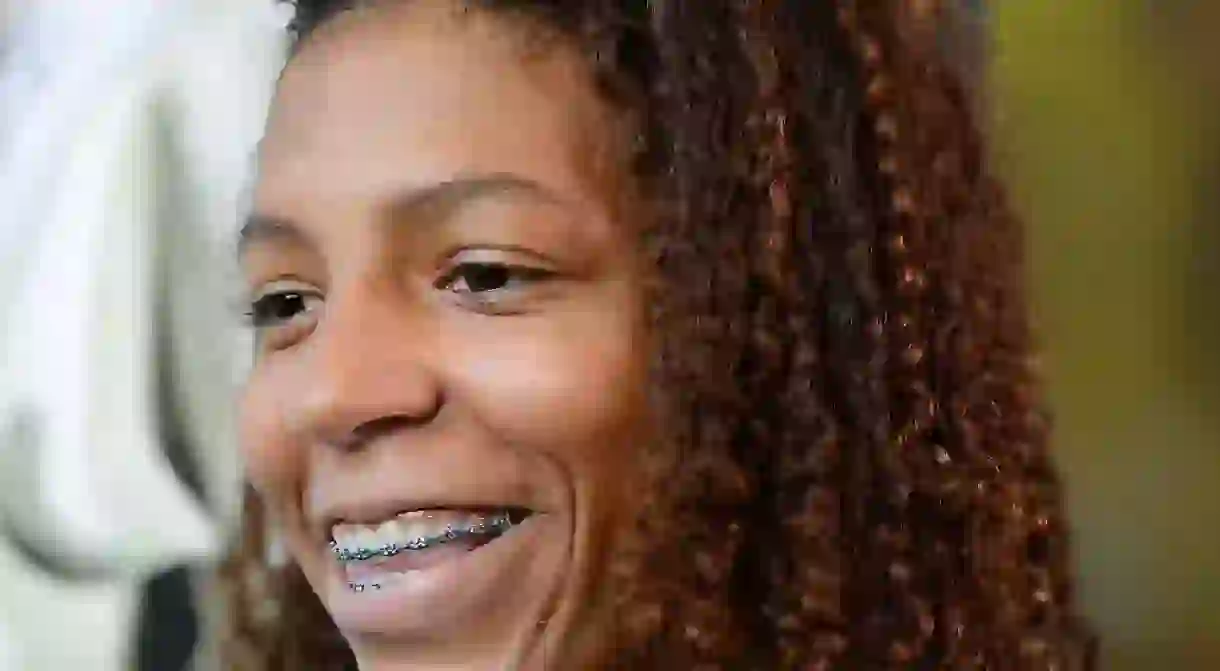Rafaela Silva: From Rio Slum To Olympic Gold

When Rafaela Silva won the gold medal in judo in the recent Summer Olympics, Brazil roared with pride and thrust her into the international spotlight, her life story gaining just as much interest as her sporting achievements. Growing up in one of Rio’s poorest slums, Silva turned to judo to channel her pent-up aggression, which led her down a path riddled with setbacks, discrimination – and eventually, champion status.
Growing Up In The City Of God
Silva was born and raised in the City of God, a notoriously violent slum (or ‘favela’ in Portuguese) in Rio made famous by award-winning 2002 film City of God that portrays the sad reality of residents there. Many turn to drugs or crime in an attempt to get out of poverty in a place where education is lacking and wealth is a lost concept. As Silva was growing up, she was suspended from school many times for being a troublemaker, until her aggression and will to fight couldn’t go ignored any longer. In fear that she would be recruited as a drug trafficker, her father enrolled the five-year-old Silva into judo classes. It was here that Silva was able to find her niche.

Beginning Judo
Silva later recalls these early classes in judo as helping her to find discipline and respect for others. It gave her an alternative to fighting in the streets and gave her a focus in her life. She began at the Instituto Reação, a social project by Olympic judo medalist Flavio Canto that aims to give underprivileged children classes in judo to take them off the streets. Her mentor, trainer, and later inspiration, Geraldo Bernardes saw her talent and took her under his wing, encouraging her to keep on training. Silva still trains at this center to this day.
International Success
Securing a scholarship that helped her financially to compete, Silva’s dedication and hard work could come to light. At 16 years old in 2008, she won the Junior World Championships in Bangkok, Thailand. This rolled into a series of successes with her first adult worldwide competition in 2009 in Rotterdam, Holland where she was placed fifth. For the first time, she was able to financially help her family and pay the bills. It also shaped her goals for competing in the Olympics, her sights set on London 2012. It was there that she faced her biggest setback yet, one that nearly ended her judo career.

London Olympics 2012
In London, 2012, she competed against Hungarian Hedvig Karakas. Whilst in the middle of the fight, Silva performed an illegal move and was immediately disqualified. Not only was this a tremendous blow for her career, it triggered the start of a social media backlash that subjected her to immensely hurtful and racist comments. She was discriminated for being black and poor, referred to as a ‘monkey in a cage’, labelled a ‘shame to her family’ and written off as not being right for judo. She sunk into a depression and turned her back on the sport.
Overcoming Defeat
However, whilst her frame of mind was not in the right place, her trainer Bernardes would not let her give up and repeatedly encouraged her to keep training and not let go of her talent. With his support and the guidance of a psychologist, Silva kept training and eventually came round to the idea of trying once more on home ground at the Rio 2016 Olympics. What made this event even more special for her was that the Olympic Park is next to her childhood home and she was determined to prove to her critics that she could do it.
Olympics Rio De Janeiro 2016
In the run up to the Olympics, she trained between two and three times a day, which included physical and technical training, as well as nutritional and psychological exercises. On August 8th, she faced her opponent, Mongolian Sumiya Dorjsuren, and made history by taking home the gold and silencing the critics. Having left her phone in airplane mode throughout the lead up to her event, on turning it back on she was flooded with messages of support from people all around the world as well as other Brazilian athletes such as footballers Marta and Neymar. Her Instagram following sky-rocketed too, taking her to stardom and making her a world-known athlete.

Silva proved herself to be an Olympic champion, the best women in the world at judo. But not only that, she overcome prejudice and stereotypes associated with her background and gives a clear message that with hard work and dedication, anything is possible. This is the message she hopes to give to children in the City of God and other slums, in a hope that her efforts will inspire others to follow their passion and avoid the life of crime.













